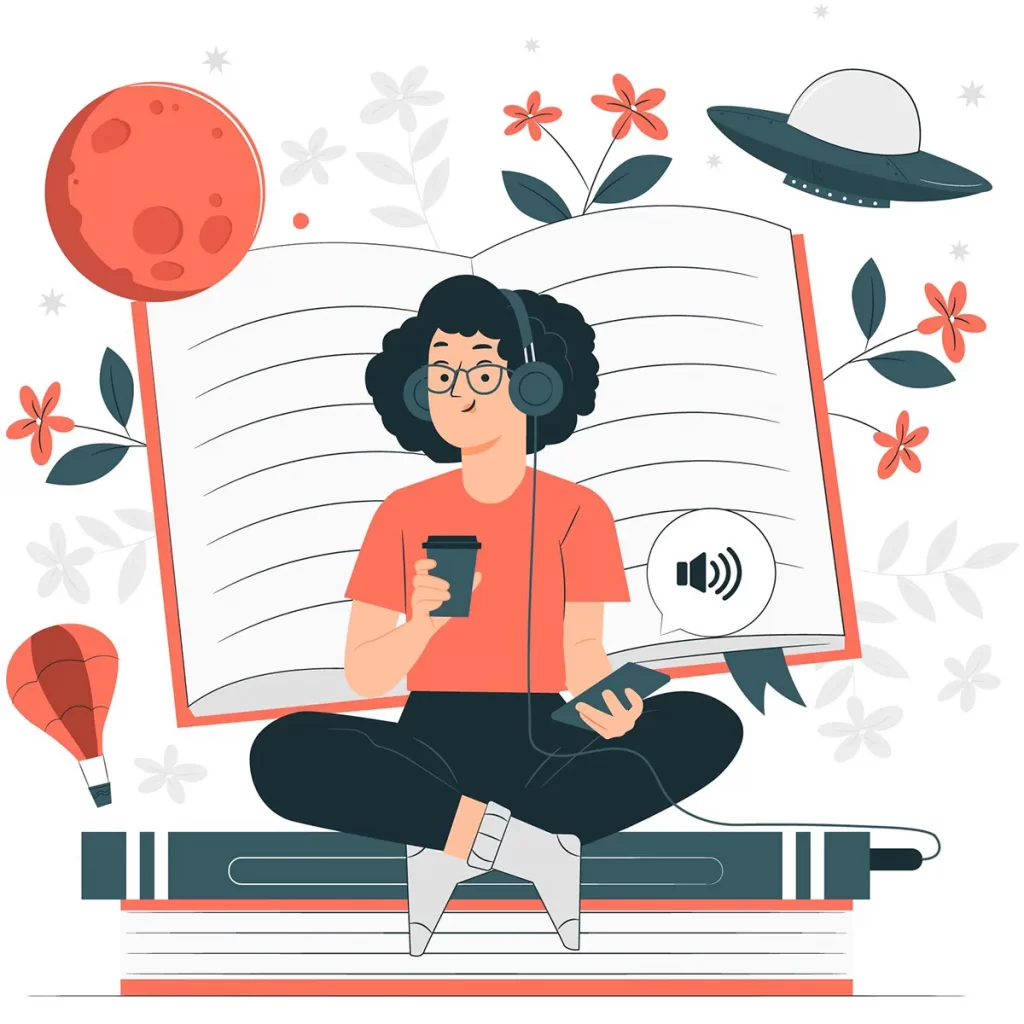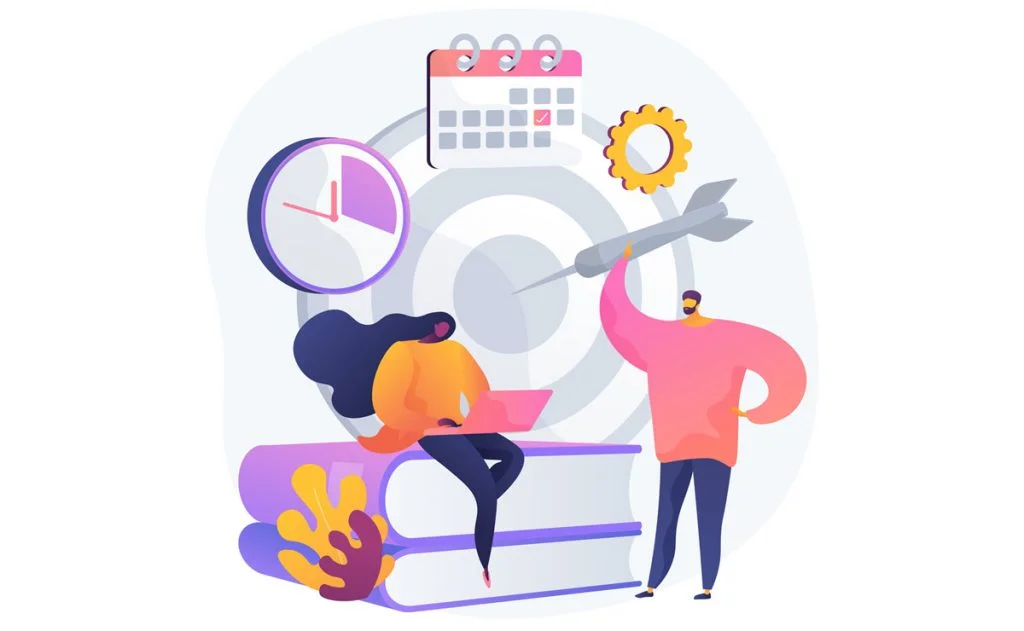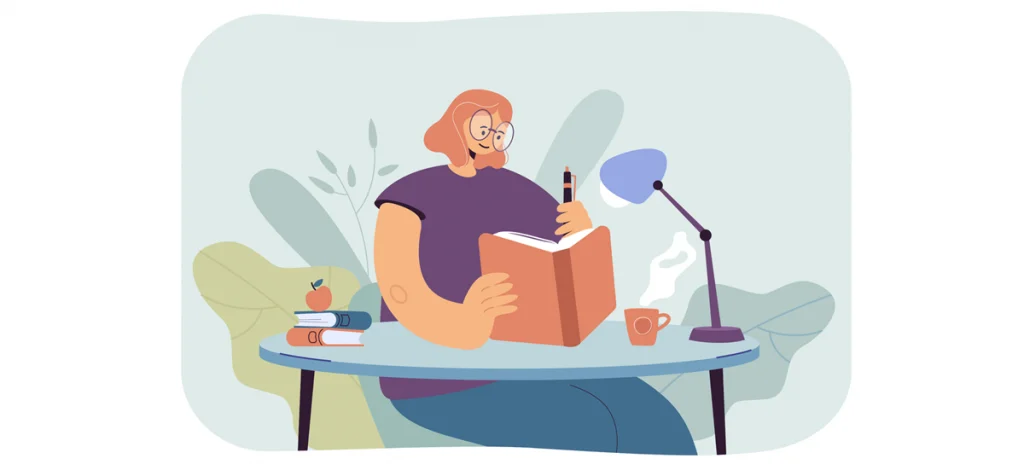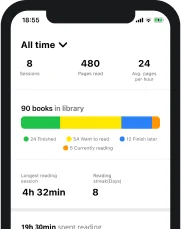Taking advantage of all the benefits of reading can sometimes be challenging nowadays. Our attention is constantly distracted by other forms of entertainment, we live busy lives and have less and less free time to unwind, relax, and feed our souls. Our love for books and reading takes hit after hit, but we also manage to come up with all kinds of different solutions to maintain and improve our reading habits.
One of the most creative and effective solutions is the audiobook. But what are the benefits of listening to audiobooks vs reading? Is it better to read or listen to a book? We know these are pressing questions, so all your answers are below.
Do Audiobooks Count as Reading?
The natural question to answer first is, of course, “Are audiobooks as good as reading?”. Well, for the most part, reading a book and listening to it as an audiobook is relatively the same. They provide similar experiences, and the information we acquire is obviously the same.
The difference comes from the way that information is decoded by our brain. Spoken language gets processed differently from the written language, and it involves a completely different process. Listening involves our hearing center of the brain, while reading involves among other things, our visual cortex.
Even though the decoding of the message is done differently, in completely different parts of the brain, the final result is relatively the same. Of course, it also depends on the reading material we are trying to digest. A novel or a book we read for pleasure is going to be processed exactly the same whether we actually read it or listen to it, but things will be somewhat different for books we are trying to actually learn from.
For the most part though, yes. Listening to audiobooks can count as reading, as the final result and the benefits we will take advantage of will be relatively the same.
Do We Learn Better by Reading or Listening?
As I mentioned earlier, when it comes to learning, things are not as straightforward as they are when we discuss reading for pleasure. Reading and retaining information requires a somewhat different approach and the efficiency of reading vs audiobooks differs significantly in performance.
A reading vs audiobooks study has shown that when required to retain large amounts of information, students performed better in quizzes after reading the material than they were after listening to it in the form of an audiobook or podcast.
Not only that but retaining information through reading is also done a lot quicker than through listening. The reason for that comes partly from the fact that through reading, more content is consumed on average than through listening: the average adult is able to read 250-300 words per minute, while the rate of speech becomes harder to understand when it exceeds 150-160 words per minute.
To paint a clearer picture, an average reader with a reading speed of 250 words per minute will go through 15,000 words in an hour. In the same hour, listening to an audiobook would mean listening to just 9,000 words. That is a 40% difference that favors reading over listening to audiobooks when it comes to the speed at which materials are being gone through.
The interesting fact to remember though, is that despite this huge difference in speed, listening can be a great learning tool. An ideal approach would be to try and go over the material we are trying to learn twice: once through reading it, once through listening to it. By doing this, our brain not only gets the same information twice, increasing the amount of data it retains, but it also gets to process it in two completely different ways.
Involving more parts of the brain to learn the same information means that the neuronal connections that it creates in order to retain the data are going to be stronger and more varied. The network that will hold the information will be more complex, making it a lot more likely for you to be able to store and easily recall the information from memory.
If you’re struggling with the amount of information you manage to retain through reading, one solution would be to start learning certain mnemonic strategies like the Loci technique, chunking, or spaced repetition.
The easier way would be to start using Basmo, the best reading tracking app.
Basmo comes fully packed with interesting features, including some that can change the way you retain information through reading. You can use Basmo to type notes while reading sessions are ongoing within the app and you can format and organize them however you see fit to make it easier for you to go over them later.
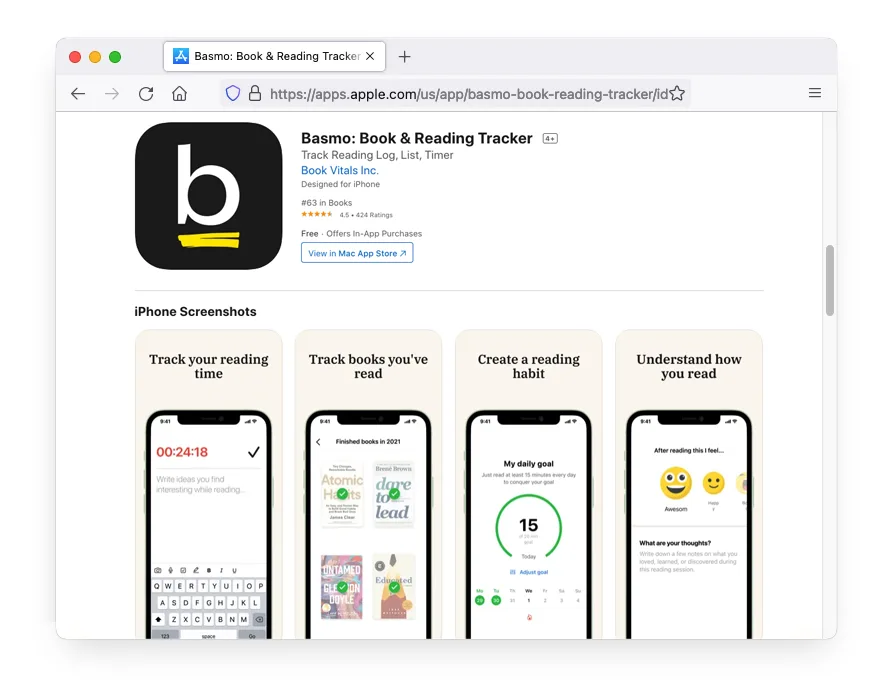
Not only that, but the journaling feature makes it easier than ever to write summaries that will help you later recall what you read. Using the innovative page scanner which uses your phone’s camera to scan the pages of your book makes it easier to save your favorite quotes or the important paragraphs, and these can either be saved as images or directly as editable text.
Give Your Reading Experience
An Extra Boost With Basmo
Track the books you read, monitor the time you spend reading and keep notes on your reading habits and how it makes you feel. You can set yourself targets for the time you spend reading and you can get notified whenever you’re behind on your reading time.
Is it better to read or listen to a book?
A clear winner can only be declared by each individual separately, as determining which one is actually better depends on a series of factors, including personal taste. There are some key aspects we need to consider though.
Reading is faster than listening
As I mentioned earlier, listening to an audiobook will take you around 40% longer than reading the same material. If speed is important to you and you need to get some reading done quickly, audiobooks may not be the right choice. Of course, some will argue that even though listening takes longer, it also comes with the benefit of allowing you to focus on other things while doing it as well.
Comprehension is the same
There is little to no difference in comprehension between the two types of consuming literature. Even though the information is processed differently by our brain, recent audiobooks vs reading research from 2021 showed that the overall difference between reading and listening in terms of comprehension was negligible.
Listening to audiobooks is more convenient
What is not negligible though, is the difference in convenience between reading a book and listening to an audiobook. While reading requires a certain setting, more focus, and your undivided attention, listening to audiobooks comes with the benefit of being possible anytime, anywhere.
You can easily squeeze an audiobook listening session into your busy daily schedule. You can do it while driving, cooking, cleaning the house, or doing pretty much any other daily chore you can think of as long as your ears are not involved in it.
Reading requires a different approach, you need a comfortable setting in order to enjoy a good reading session, no distractions, and a bit of time to dedicate exclusively to this activity.
Ultimately, making the choice of listening to audiobooks vs reading is your decision and it depends on your daily schedule and personal preference. If you prefer to have some off-time for yourself and can afford to spend time reading, you should go for it. If your daily schedule is always full and you want to maximize your efficiency by doing two things at once, audiobooks are the way to go.
When is listening to a book better than reading it?
Despite the obvious performance advantage of reading, there are certain situations when listening to a book is better than reading it. Sometimes we need to make a choice between optimal performance and convenience and that is perfectly fine. Here’s when listening to an audiobook can be a better choice than reading.
When we are too busy
Obviously, one of the main reasons why audiobooks even exist is to make our lives easier. Our daily schedule doesn’t always have any room for extended reading sessions to satisfy our need for literature, so listening to audiobooks is a much better choice than not reading at all.
When we want to receive information effortlessly
Our busy schedule comes with a series of effects, one of them being the fatigue that seems to govern our existence these days. Sometimes we are simply too tired and exhausted after a long day of work, running errands, taking care of our family, and keeping the house tidy and clean. Instead of picking up a book and realizing that we can barely focus on reading with our itchy, watery eyes, hitting the play button and listening to an audiobook instead is a great alternative.
When the audiobook is a masterpiece
Not all audiobooks are the same. While some are mere audio “transcripts” of a book, others are absolute works of art. The voice of the reader, the way he or she tells the story, and how the intonation changes from one paragraph to another or during dialogs can make listening to an audiobook an experience that shouldn’t be missed.
When the audiobooks are summaries
In case you didn’t know this yet, audiobooks can come in different shapes and forms. You are not limited to listening to entire books, you can even choose to make the experience shorter and more efficient through audio summaries.
Summary Z is a special app, designed to provide today’s readers with as many solutions for consuming literature as possible. You can choose to read or listen to summaries of the most popular books, in bite-size chunks of 15 minutes or less.
The app can also act as a reading tracker, while also providing you access to vast amounts of content.
What are the brain benefits when reading vs listening?
We all know that reading has countless benefits for our mental and physical health, as well as for our general well-being. We thought it would be interesting to find out how reading and listening to audiobooks differ in terms of brain benefits, so here are the most interesting facts we managed to find.
The brain is activated differently when reading vs listening
As I was saying above, even though the information we acquire through reading and listening is pretty much the same, the way it is processed by our brain differs significantly. Speech and print activate the brain in completely different ways.
Understanding what we read activates the areas associated with language processing from the left brain. Understanding what we listen to activates both hemispheres since your brain will need to also process speech and acoustics. Semantic processing is done in the same cortical areas, but the difference in brain activation comes from the different inputs: audio vs visual, which both require multiple and complex brain networks to work hard for the final result.
Better empathy through listening
While the fact that reading, in general, has a positive effect on how we perceive the world and the level of empathy we have, an interesting twist is the fact that audiobooks can enhance this effect.
Developing greater empathy is a cause of you hearing the emotion in the reader’s voice, and not only being able to pick up on emotional queues through reading. The emotional circuits in the brain get activated more effectively when the audiobook is narrated by a talented storyteller.
Visualizing what you listen to is also easier when the narrator is an emotionally-driven storyteller, which can also lead to better, deeper processing of the story and a more wholesome experience.
Information is better retained through reading
Retaining information is a complex process, and one aspect that is often forgotten when our ability to remember what we read is in question is our ability to focus on what we read.
Being focused can lead to better information retention and one study that analyzed the differences between reading and listening to audiobooks has concluded that maintaining focus on the task at hand is done a lot better when reading than when listening.
How to improve reading and listening experiences
Taking full advantage of both reading and listening benefits requires some mindfulness and a good mindset. If you want your brain to benefit from both reading and audiobooks, there is one thing that can help with both: Basmo.
Basmo can be used to track your reading and audiobooks, so you always know what you want to read or listen to by creating easily customizable reading lists.
Not only that, but you will also be able to track your progress reading or listening to a certain book, and you will have access to a great variety of insightful stats about your reading habits.
Retaining the important information from what you read or listen to can also be enhanced with Basmo. Not only can you take notes during reading sessions, but you can also use the text-to-speech feature which allows you to speak into your phone’s microphone while your words are being converted into written text. That way you can take your notes effortlessly and efficiently.
Final thoughts
Listening to audiobooks is a great alternative to reading. Even though from a performance point of view, reading is the superior activity, audiobook listening comes with a different series of benefits that you can enjoy.
Using Basmo, whether you read or listen to an audiobook, is going to enhance your experience, make your sessions more enjoyable, and will improve your results in terms of volume and information retained.
